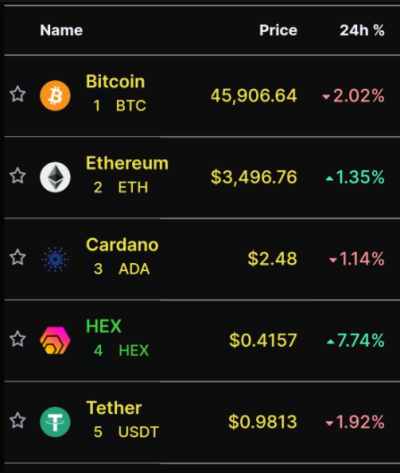Crypto Staking Rewards Tax Treatment
26 Jan 2022
There's more at stake than meets your wallet in the world of DeFi staking protocols
Categories & Tags

HMRC’s view on the taxation of staking income is complicated and considered unfair by many, in that the so-called staking reward ‘earnings’ of tokens in the form of reflections are advised to be treated as Miscellaneous Income and therefore subject to income tax.
Staking rewards are taxable when ‘received’, which in some instances will be at the end of the staking period (according to HMRC). At this point, the reward tokens are minted, transferred to a wallet, and become available to the investor to trade (e.g. sell, swap or use in any other way to dispose of them) or reinvest as a new stake principal in the same crypto protocol.
In both instances, the price (value) of the reward tokens could significantly depreciate between being minted and charged to income tax, and later converted to fiat currency. Therefore, a crypto investor could be on the hook for a sizeable income tax bill at the point of minting, but where they do not convert the reward tokens to fiat currency until many months or years later, they may find the actual real-world value upon which they have already paid income tax to be at a significantly lower value.
Example:
Mike is employed and is a higher rate taxpayer. He trades in crypto as a casual investor.
He buys 1,000 LAMBO tokens and stakes them for 1 year.
At the end of the staking period Mike has earned 500 LAMBO tokens in reward tokens (reflections).
The price of a LAMBO token is £20 at the end of the staking period. Based on HMRC’s guidance, Mike will have to report Miscellaneous Income of £10,000 and pay tax of £4,000 in GBP to HMRC (at the time of writing, HMRC do not accept payment of taxes in crypto, stating it is too volatile).
Mike decides to hold his LAMBO tokens, but 1 year later they have significantly dropped in value, with his 500 reward tokens only being worth £1,000. He decides to cut his losses and sells his LAMBO tokens, converting his previously earned and taxed ‘passive income’ into GBP.
Overall, Mike has paid income tax of £4,000 but has only realised £1,000 of income in return.
In a fair tax system, Mike should only pay tax on the fiat currency realised income (FCRI) of £1,000.
It should be noted here that as soon as reward tokens are sold/swapped, they fall into the capital taxes regime, meaning any gains on disposal will be chargeable to capital gains tax, with any losses being usable against other capital gains. In our example, the reward tokens have resulted in a loss of £9,000 (£10,000 value at the time of minting less £1,000 at the time of selling) meaning a capital loss can be claimed against any other same year capital gains, or carried forward and used against future ones.
So whilst there is some tax relief available, the important point to consider is that there is a mismatch in tax rates. At the time of writing, income tax in the higher rate tax band is 40% and 45% in the additional rate (£150,001 income or above). Capital gains tax is 20%, meaning poor Mike would only be able to get relief for half of the tax previously paid on the amount lost. He has still also paid 40% on the £1,000 FCRI, and together with 20% income tax now paid on the £9,000 lost, has paid £2,200 on £1,000 worth of income; that’s a 220% rate of tax! There is no way for Mike to create a Miscellaneous Income Loss by selling his 500 LAMBO tokens at a loss, and even if there was, he would still need another source of Miscellaneous Income to claim the loss relief. In this scenario, he does have a capital loss, but there’s a further spanner in the works, as Mike must have other capital gains in order to obtain the loss relief, so it’s not clear cut at all.
Token Disposal Issues
The same issue may well occur with straight forward buying and selling of crypto assets, in that the day a token is disposed of might see the price being much higher than when it is eventually converted to fiat currency via a series of exchange transactions. If this all happens around tax year end, there could be a significant cash flow disadvantage.
Example:
Anne buys 100 ATOM tokens in April 2021 for £10,000 and sells them on 5 April 2022 for £100,000, swapping them for 1,000 CLOG tokens worth the same value.
She will be required to report a capital gain of £90,000, paying tax of £18,000.
Later in 2022, the CLOG price crashes and they are only worth £15,000, so Anne cuts her losses and sells them for GBP. Whilst she will be able to claim loss relief of £75,000, Anne has to wait until she has made more capital gains of the equivalent value to obtain the tax relief, as well as waiting for the tax year to finish.
In this scenario however, Anne will at least get the same amount of tax back as what she paid, but has to suffer both the crypto loss and the payment of tax upfront. Furthermore, if she doesn’t have the cash readily available to pay the tax in the first place, she may have to sell more crypto to pay for it, this triggering a secondary capital gains transaction. Crypto is not for the faint-hearted!
In the volatile world of crypto, this is far more likely to happen than in mature markets, so it’s imperative that HMRC properly consider the world of crypto and introduce a much fairer system. With the advent of Making Tax Digital on the horizon, this is one step closer to achieving that.
A simpler and fairer way?
Where Crypto investors are being rewarded in the same asset that has been purchased, it could potentially be argued that rewards of the same token/asset class are ultimately capital in nature, and not so-called interest payments and subject to Income Tax. An issue here is that staking rewards are often referred to as passive income, but is it not asset proliferation instead?
This could be supported by the fact that when tokens are staked, they are burned (destroyed) and replaced with stake shares, the number of which determine the staking yield. When the stake ends, the shares are destroyed and the tokens are returned, including the reward tokens.
Would it not be simpler to treat this as a mature holding with a new value, taxable when sold? When products are farmed, this is exactly what happens. Original seeds create more seeds, which increases the total number of matured seeds, which are not taxed at maturity, but when sold. This would remove the tax-mismatching problem for investors and would certainly make tax simpler.
News & Resources

Less than 2 months to self-assessment filing deadline

IHT treatment of unused pension funds and death benefits

Budget Summary November 2025

Claim flat rate expenses for work clothing and tools

MTD – qualifying income

Paying tax arrears using HMRC payment plans

Tell HMRC about unpaid tax on crypto assets


